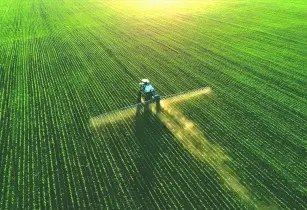The Food and Agriculture Organization of the United Nations (FAO), the Southern Africa Development Community (SADC) and the government of Malawi have launched an initiative to establish a framework to improve regulation of fertilisers across southern Africa
The programme, the Harmonised Fertiliser Regulatory Framework (HFRF) project, also seeks to enhance integration and improve access to regional fertiliser markets. This regional initiative is being implemented in the 16 SADC Member States.
“This project will be implemented in collaboration with the Hand in Hand initiative, an evidence based country-led and country-owned initiative to accelerate agricultural transformation and sustainable development to eradicate poverty. It contributes to sustainable development goal to zero hunger, and is aligned with the Malawi 2063 Agenda pillar 1 of agricultural productivity and commercialization, specifically to improve production and incomes of the majority of people, with emphasis on effective governance systems and institutions as an enabler,” said Zhijun Chen, representative of FAO in Malawi.
By establishing the Regional Harmonised Fertiliser Regulatory Framework, the project will therefore help to amalgamate ongoing efforts on fertiliser quality control and enforcement of standards across the region.
In Malawi, adulteration of fertilisers, underweight packaging and poor quality of fertilisers are some of the challenges that smallholder farmers face. Overall, the low agricultural productivity, which predominates in SADC countries, is due in part to misuse and underuse of low quality fertilisers.
“Access to, and judicious use of, high quality fertilisers is key to high agricultural productivity,” stated Sandram Maweru, principal secretary for irrigation at the Ministry of Agriculture.
He emphasised the importance of having a conducive environment for agricultural development, citing the need to address challenges that farmers face including high cost of fertilisers, untimely access to fertilisers, poor quality of fertiliser, and late fertiliser application, all of which have an impact on food, nutrition and income security.
The launch of the project took place virtually on 28 July 2021, with participation from a wide range of stakeholders including the academia, research, government, non-governmental and civil society actors.





